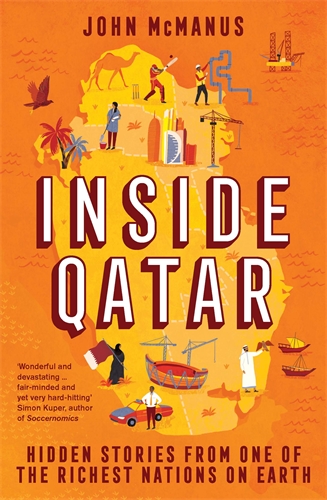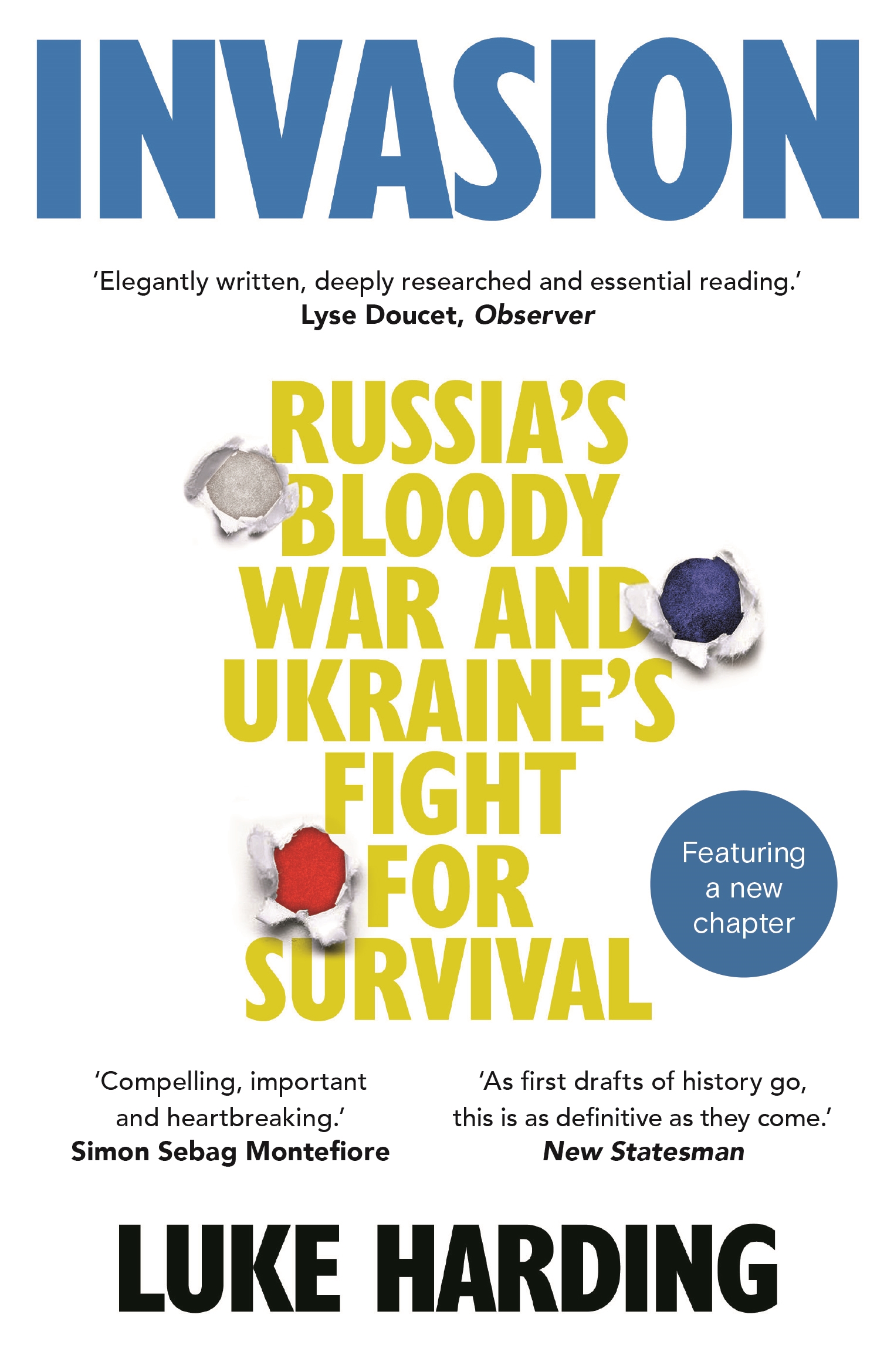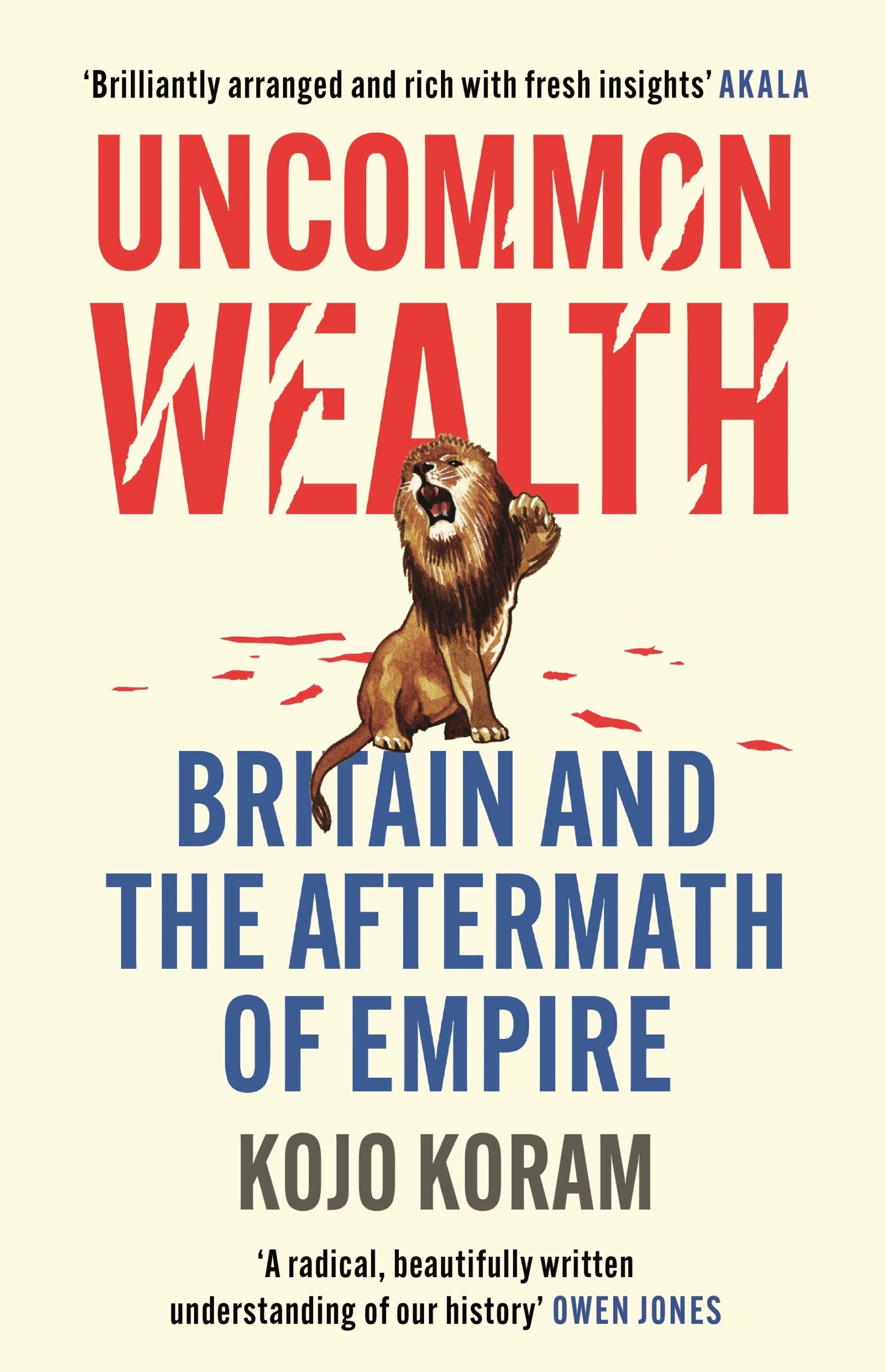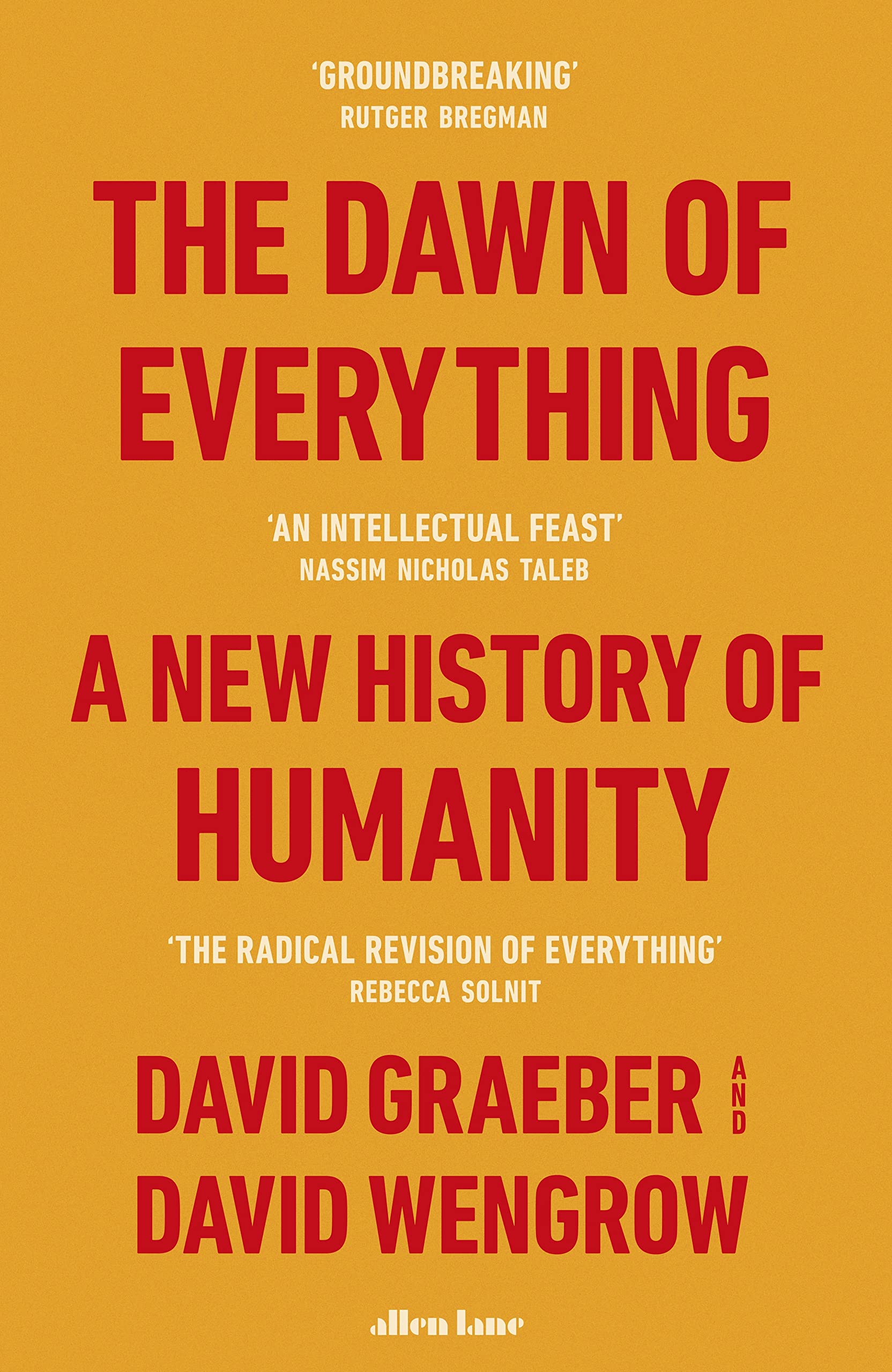Posted on May 9, 2023 by James Tookey -

Under President Xi Jinping, China’s global ambitions have taken a dangerous new turn. Bullying and intimidation have replaced diplomacy, and trade, investment, even big-spending tourists and students have been weaponised. Beijing has strengthened its alliance with Vladimir Putin, supporting Russia’s aggression in Ukraine, and brooks no criticism of its own flagrant human rights violations against the Uyghur population in western China.
Western leaders say they don’t want a cold war with China, but it’s a little too late for that. Beijing is already waging a more complex, broader and more dangerous cold war than the old one with the Soviet Union. And it is intensifying.
This thought-provoking and alarming book examines this new cold war’s many fronts – from Taiwan and the South China Sea to the Indian frontier, the Arctic and cyberspace. In doing so it proclaims the clear and sobering message that we must open our eyes to the reality of China’s rise and its ruthless bid for global dominance.
Posted on May 9, 2023 by James Tookey -

Time to Think goes behind the headlines to reveal the truth about the NHS’s flagship gender service for children.
The Gender Identity Development Service (GIDS), based at the Tavistock and Portman Trust in North London, was set up initially to provide — for the most part — talking therapies to young people who were questioning their gender identity. But in the last decade GIDS has referred more than a thousand children, some as young as nine years old, for medication to block their puberty. In the same period, the number of young people seeking GIDS’s help exploded, increasing twenty-five-fold. The profile of the patients changed too: from largely pre-pubescent boys to mostly adolescent girls, who were often contending with other difficulties.
Why had the patients changed so dramatically? Were all these distressed young people best served by taking puberty blockers and then cross-sex hormones, which cause irreversible changes to the body? While some young people appeared to thrive after taking the blocker, many seemed to become worse. Was there enough clinical evidence to justify such profound medical interventions in the lives of young people who had so much else to contend with?
This urgent, scrupulous and dramatic book explains how, in the words of some former staff, GIDS has been the site of a serious medical scandal, in which ideological concerns took priority over clinical practice. Award-winning journalist Hannah Barnes has had unprecedented access to thousands of pages of documents, including internal emails and unpublished reports, and well over a hundred hours of personal testimony from GIDS clinicians, former service users and senior Tavistock figures. The result is a disturbing and gripping parable for our times.
Posted on May 9, 2023 by James Tookey -

In this bold and radical book, award-winning science journalist Angela Saini goes in search of the true roots of gendered oppression, uncovering a complex history of how male domination became embedded in societies and spread across the globe from prehistory into the present.
Travelling to the world’s earliest known human settlements, analysing the latest research findings in science and archaeology, and tracing cultural and political histories from the Americas to Asia, she overturns simplistic universal theories to show that what patriarchy is and how far it goes back really depends on where you are.
Despite the push back against sexism and exploitation in our own time, even revolutionary efforts to bring about equality have often ended in failure and backlash. Saini ends by asking what part we all play – women included – in keeping patriarchal structures alive, and why we need to look beyond the old narratives to understand why it persists in the present.
Posted on May 9, 2023 by James Tookey -

After the Second World War, new international rules heralded an age of human rights and self-determination. Supported by Britain, these unprecedented changes sought to end the scourge of colonialism. But how committed was Britain?
In the 1960s, its colonial instinct ignited once more: a secret decision was taken to offer the US a base at Diego Garcia, one of the islands of the Chagos Archipelago in the Indian Ocean, create a new colony (the ‘British Indian Ocean Territory’) and deport the entire local population. One of those inhabitants was Liseby Elysé, twenty years old, newly married, expecting her first child. One suitcase, no pets, the British ordered, expelling her from the only home she had ever known.
For four decades the government of Mauritius fought for the return of Chagos, and the past decade Philippe Sands has been intimately involved in the cases. In 2018 Chagos and colonialism finally reached the World Court in The Hague. As Mauritius and the entire African continent challenged British and American lawlessness, fourteen international judges faced a landmark decision: would they rule that Britain illegally detached Chagos from Mauritius? Would they open the door to Liseby Elysé and her fellow Chagossians returning home – or exile them forever?
Taking us on a disturbing journey across international law, THE LAST COLONY illuminates the continuing horrors of colonial rule, the devastating impact of Britain’s racist grip on its last colony in Africa, and the struggle for justice in the face of a crime against humanity. It is a tale about the making of modern international law and one woman’s fight for justice, a courtroom drama and a personal journey that ends with a historic ruling.
Posted on May 9, 2023 by James Tookey -

Just 75 years ago, the Gulf nation of Qatar was a backwater, reliant on pearl diving. Today it is a gas-laden parvenu with seemingly limitless wealth and ambition. Skyscrapers, museums and futuristic football stadiums rise out of the desert and Ferraris race through the streets. But in the shadows, migrant workers toil in the heat for risible amounts.
Inside Qatar reveals how real people live in this surreal place, a land of both great opportunity and great iniquity. Ahead of Qatar’s time in the limelight as host of the 2022 FIFA Men’s World Cup, anthropologist John McManus lifts a lid on the hidden worlds of its gilded elite, its spin doctors and thrill seekers, its manual labourers and domestic workers.
The sum of their tales is not some exotic cabinet of curiosities. Instead, Inside Qatar opens a window onto the global problems – of unfettered capitalism, growing inequality and climate change – that concern us all.
Posted on May 9, 2023 by James Tookey -

Peter Apps is an award-winning journalist and Deputy Editor at Inside Housing. He broke a story on the dangers of combustible cladding thirty-four days before the Grenfell Fire. His coverage of the public inquiry has received widespread acclaim. He lives in London. Our 2023 judging panel, chaired by Martha Lane Fox, said:
A magnificent book that deftly combines vivid, compelling accounts of the victims of the fire with forensic (but no less engaging) detail on the decades of politics and policy which led up to it. Expect to find yourself crying over details of building regulations you never knew existed – and over the fact that so many of us let shifts in such regulations go unnoticed, to such devastating impact. Show Me the Bodies has the values of The Orwell Prize at its core: it is beautiful writing about a devastating subject that we should all understand.”
Posted on May 9, 2023 by James Tookey -

For months, the omens had pointed in one scarcely believable direction: Russia was about to invade Ukraine. And yet, the world was stunned by the epochal scale of the assault that began in February 2022. It was an attempt by one nation to devour another.
Invasion is Luke Harding’s compelling chronicle of the war that changed everything. For this breathtaking work of reportage he spent months reporting on the ground during the build up to the conflict and afterward; his book tells of the initial days of shock and panic, the grim reality of this ongoing war, and the unheard human stories behind the headlines. Invasion also offers insightful portraits of the the war’s two great personalities. One, Volodymyr Zelenskiy, is an actor-turned-president who rallied support on a global stage. The other, Vladimir Putin, is a dictator who dwells in a strange and unreachable realm. Harding examines the ideological, religious and personal reasons behind Putin’s decision to invade. And he confronts a crucial question: which side will prevail in this terrible war?
With the ripple effects of the largest armed conflict in Europe since 1945 already being felt beyond Ukraine and Russia’s borders, it is more vital than ever to understand how the situation on the front line will have profound effects for us all. Written in Luke Harding’s starkly transfixing style, Invasion makes for essential reading.
Posted on May 9, 2023 by James Tookey -

In the wake of the Covid-19 pandemic, we are all too aware of the urgent health inequalities that plague our world. But these inequalities have always been urgent: modern medicine has a colonial and racist history. Here, in an essential and searingly truthful account, Annabel Sowemimo unravels the colonial roots of modern medicine.
Tackling systemic racism, hidden histories and healthcare myths, Sowemimo recounts her own experiences as a doctor, patient and activist. Divided exposes the racial biases of medicine that affect our everyday lives and provides an illuminating – and incredibly necessary – insight into how our world works, and who it works for. This book will reshape how we see health and medicine – forever.
Posted on May 17, 2022 by Eric Blair -

“Outside my work the thing I care most about is gardening – George Orwell
Inspired by her encounter with the surviving roses that Orwell is said to have planted in his cottage in Hertfordshire, Rebecca Solnit explores how his involvement with plants, particularly flowers, illuminates his other commitments as a writer and antifascist, and the intertwined politics of nature and power.
Following his journey from the coal mines of England to taking up arms in the Spanish Civil War; from his prescient critique of Stalin to his analysis of the relationship between lies and authoritarianism, Solnit finds a more hopeful Orwell, whose love of nature pulses through his work and actions. And in her dialogue with the author, she makes fascinating forays into colonial legacies in the flower garden, discovers photographer Tina Modotti’s roses, reveals Stalin’s obsession with growing lemons in impossibly cold conditions, and exposes the brutal rose industry in Colombia.
A fresh reading of a towering figure of the 20th century which finds solace and solutions for the political and environmental challenges we face today, Orwell’s Roses is a remarkable reflection on pleasure, beauty, and joy as acts of resistance.”
Posted on May 17, 2022 by Eric Blair -

“Did the UK government really ‘follow the science’ throughout the Covid-19 pandemic, as it claims?
As head of the Wellcome Trust, Jeremy Farrar was one of the first people in the world to hear about a mysterious new disease in China – and to learn it could readily spread between people. A member of the SAGE emergency committee, Farrar was a key figure in both the UK and the World Health Organization at the onset of the Covid-19 pandemic amid great uncertainty, fast-moving situations and missed opportunities. Spike is his widely acclaimed inside story. His account casts light on the UK government’s claims to be ‘following the science’ and is informed not just by Farrar’s views but by interviews with other top scientists and political figures.”
Posted on May 17, 2022 by Eric Blair -

“Do Not Disturb is a dramatic recasting of the modern history of Africa’s Great Lakes region, an area blighted by the greatest genocide of the twentieth century. This bold retelling, vividly sourced by direct testimony from key participants, tears up the traditional script.
In the old version, an idealistic group of young rebels overthrows a genocidal regime in Kigali, ushering in an era of peace and stability that makes Rwanda the donor darling of the West, winning comparisons with Switzerland and Singapore. The new version examines afresh questions which dog the recent past: Why do so many ex-rebels scoff at official explanations of who fired the missile that killed the presidents of Rwanda and Burundi? Why didn’t the mass killings end when the rebels took control? Why did those same rebels, victory secured, turn so ruthlessly on one another?
Michela Wrong uses the story of Patrick Karegeya, once Rwanda’s head of external intelligence and a quicksilver operator of supple charm, to paint the portrait of a modern African dictatorship created in the chilling likeness of Paul Kagame, the president who sanctioned his former friend’s murder.”
Posted on May 17, 2022 by Eric Blair -

“When the news first began to trickle out of China about a new virus in December 2019, risk-averse financial markets were alert to its potential for disruption. Yet they could never have predicted the total economic collapse that would follow in COVID-19’s wake, as stock markets fell faster and harder than at any time since 1929, currencies across the world plunged, investors panicked, and even gold was sold.
In a matter of weeks, the world’s economy was brought to an abrupt halt by governments trying to contain a spiralling public health catastrophe. Flights were grounded; supply chains broken; industries from tourism to oil to hospitality collapsed overnight, leaving hundreds of millions of people unemployed. Central banks responded with unprecedented interventions, just to keep their economies on life-support. For the first time since the second world war, the entire global economic system contracted.
This book tells the story of that shutdown. We do not yet know how this story ends, or what new world we will find on the other side. In this fast-paced, compelling and at times shocking analysis, Adam Tooze surveys the wreckage, and looks at where we might be headed next.”
Posted on May 17, 2022 by Eric Blair -

“How should we talk about sex? It is a thing we have and also a thing we do; a supposedly private act laden with public meaning; a personal preference shaped by outside forces; a place where pleasure and ethics can pull wildly apart.
Since #MeToo many have fixed on consent as the key framework for achieving sexual justice. Yet consent is a blunt tool. To grasp sex in all its complexity – its deep ambivalences, its relationship to gender, class, race and power – we need to move beyond ‘yes and no’, wanted and unwanted.
We need to interrogate the fraught relationships between discrimination and preference, pornography and freedom, rape and racial injustice, punishment and accountability, pleasure and power, capitalism and liberation. We need to rethink sex as a political phenomenon.
Searching, trenchant and extraordinarily original, The Right to Sex is a landmark examination of the politics and ethics of sex in this world, animated by the hope of a different one.”
Posted on May 17, 2022 by Eric Blair -

In this astonishing collection of essays, the award-winning poet and novelist Kei Miller explores the silence in which so many important things are kept. He examines the experience of discrimination through this silence and what it means to breach it: to risk words, to risk truths. And he considers the histories our bodies inherit – the crimes that haunt them, and how meaning can shift as we move throughout the world, variously assuming privilege or victimhood.
Through letters to James Baldwin, encounters with Liam Neeson, Soca, Carnival, family secrets, love affairs, white women’s tears, questions of aesthetics and more, Miller powerfully and imaginatively recounts everyday acts of racism and prejudice.
With both the epigrammatic concision and conversational cadence of his poetry and novels, Things I Have Withheld is a great artistic achievement: a work of beauty which challenges us to interrogate what seems unsayable and why – our actions, defence mechanisms, imaginations and interactions – and those of the world around us.
Posted on May 17, 2022 by Eric Blair -

Britain didn’t just put the empire back the way it had found it.
In Uncommon Wealth, Kojo Koram traces the tale of how after the end of the British empire an interconnected group of well-heeled British intellectuals, politicians, accountants and lawyers offshored their capital, seized assets and saddled debt in former ‘dependencies’. This enabled horrific inequality across the globe as ruthless capitalists profited and ordinary people across Britain’s former territories in colonial Africa, Asia and the Caribbean were trapped in poverty. However, the reinforcement of capitalist power across the world also ricocheted back home. Now it has left many Britons wondering where their own sovereignty and prosperity has gone…
Decolonisation was not just a trendy buzzword. It was one of the great global changes of the past hundred years, yet Britain – the protagonist in the whole, messy drama – has forgotten it was ever even there. A blistering uncovering of the scandal of Britain’s disastrous treatment of independent countries after empire, Uncommon Wealth shows the decisions of decades past are contributing to the forces that are breaking Britain today.”
Posted on May 17, 2022 by Eric Blair -

The Western world has turned its back on refugees, fuelling one of the most devastating human rights disasters in history.
In August 2018, Sally Hayden received a Facebook message. ‘Hi sister Sally, we need your help,’ it read. ‘We are under bad condition in Libya prison. If you have time, I will tell you all the story.’ More messages followed from more refugees. From there began a staggering investigation into the migrant crisis across North Africa.
My Fourth Time, We Drowned follows the shocking experiences of refugees seeking sanctuary, but it also surveys the bigger picture: the negligence of NGOs and corruption within the United Nations; the economics of the twenty-first-century slave trade and the EU’s bankrolling of Libyan militias; the trials of people smugglers; the frustrations of aid workers; the loopholes refugees seek out and the role of social media in crowdfunding ransoms. Who was accountable for the abuse? Where were the people finding solutions? Why wasn’t it being widely reported?
David Edgerton, the Chair of Judges for The Orwell Prize for Political Writing 2022, commented:
Posted on May 17, 2022 by Eric Blair -

For generations, our remote ancestors have been cast as primitive and childlike – either free and equal, or thuggish and warlike. Civilization, we are told, could be achieved only by sacrificing those original freedoms or, alternatively, by taming our baser instincts. David Graeber and David Wengrow show how such theories first emerged in the eighteenth century as a reaction to indigenous critiques of European society, and why they are wrong. In doing so, they overturn our view of human history, including the origins of farming, property, cities, democracy, slavery and civilization itself.
Drawing on path-breaking research in archaeology and anthropology, the authors show how history becomes a far more interesting place once we begin to see what’s really there. If humans did not spend 95 per cent of their evolutionary past in tiny bands of hunter-gatherers, what were they doing all that time? If agriculture, and cities, did not mean a plunge into hierarchy and domination, then what kinds of social and economic organization did they lead to? The answers are often unexpected, and suggest that the course of history may be less set in stone, and more full of playful possibilities than we tend to assume.
The Dawn of Everything fundamentally transforms our understanding of the human past and offers a path toward imagining new forms of freedom, new ways of organizing society. This is a monumental book of formidable intellectual range, animated by curiosity, moral vision and faith in the power of direct action.
Posted on May 17, 2022 by Eric Blair -

“Meet the mother whose children were taken away, and the father who fought for his son. Listen to the radical social worker, the judge, the lawyer. See inside the homes of foster carers, adoptive parents and children in care. Because behind closed doors, a scandal is ongoing.
We now remove more children from their parents than ever before, more than any other western country. Not because of a rise in physical or sexual abuse, but because of complex factors that are overlooked and misunderstood.
Children’s Care is a system where fathers are ignored, and mothers are punished for experiencing abuse. Rife with prejudices about race, ableism and class, determined by a postcode lottery. Blind to poverty and its effects on family life. And, at its very worst, an exercise in social engineering that can never replace parental love.
This is not a soft issue. Not a ‘women and children’ problem. It is a prism through which we can understand the deepest issues at play in politics, economics and society today, and it is happening behind closed doors.
Because of legal restrictions against reporting in family courts, the uneasy work of social care and the shame poured on parents, these problems remain out of our sight. They are the subject of horror headlines or stale statistics. But family life is at the heart of who we are as people, and it is they who can help us understand.
From North to South, rich and poor, Black and white, these are the people who know, first-hand, what is going wrong – and how we can fix it.
These are their stories.”

















